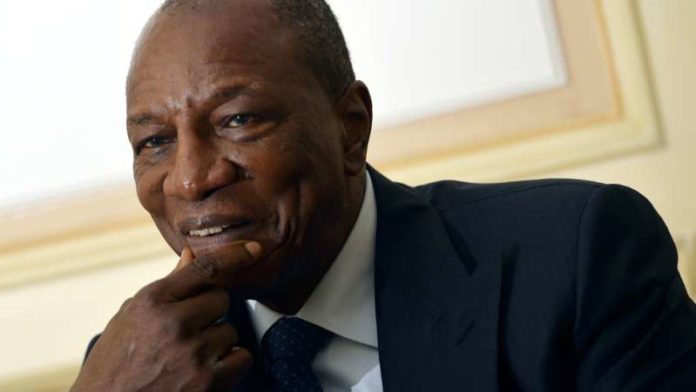
PROTESTS erupted in Guinea capital, Conakry, amid signs that the country’s president, Alpha Conde, may seek adjustments to the Constitution that will enable him to add a third term to his presidency, said Reuters.
“While the number of protesters in demonstrations scattered across the capital was low, the security services were out in force, breaking up makeshift barricades and making some arrests,” said Reuters in a report today.
Conde’s second five-year term expires in 2020, but the 81-year-old leader has refused to rule out running again and asked his government last month to look into drafting a new constitution that would enable him to serve a third term as president.
Conde’s first election win in 2010 ended two years of military rule and raised hopes for democratic progress in Guinea, which was governed by President Lansana Conte for nearly a quarter of century until his death in 2008, said Reuters.
Conde’s opponents, however, say he has cracked down on dissent since coming to office after years as an opposition figurehead fighting against Conte’s authoritarian rule.
The protests come as Guinea turns its attention again towards finding ways to monetise its enormous resources of iron ore. It has called for tenders to develop its Simandou iron ore prospect.
On October 7, Australian company Fortescue Metals Group confirmed it had bid to develop two blocks of Simandou, the giant iron ore deposit located in Guinea.
A Guinea government commission in charge of the international tender for Simandou blocks 1 and 2 should come to a final decision in around a month, the sources close to the commission told Reuters last week.
Simandou has been mired in protracted legal disputes, while the high cost of infrastructure to transport the ore out of the remote southeastern corner of Guinea has also put a dampener on potential developers’ enthusiasm.
The government insists that ore from Simandou must be exported through Guinea, requiring the developer to build a 650km (400 mile) railway to Guinea’s coast as well as a deep-water port, taking the overall cost of developing the deposit to an estimated $23bn.
Simandou blocks 3 and 4 are owned by a joint venture of Rio Tinto, China Aluminium Corp (Chinalco), and the Guinean government.
And on October 111, Guinea and Liberia signed a deal to allow several mines in Guinea, including the giant Nimba iron ore project, to export through Liberia.
The logistics of transporting tons of raw materials to port from mining sites in remote parts of Guinea has been a major hurdle for prospective developers of the country’s vast mineral wealth.










